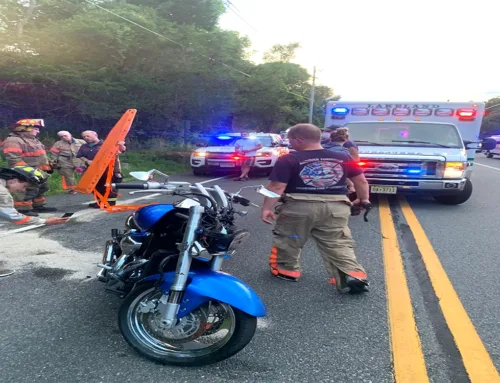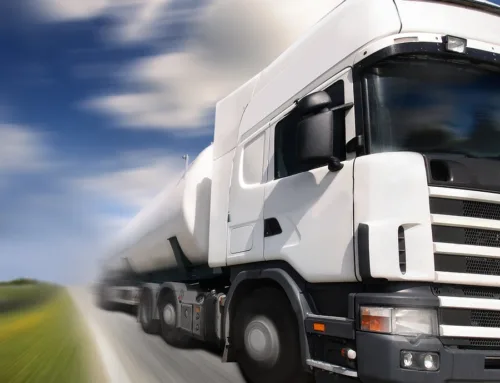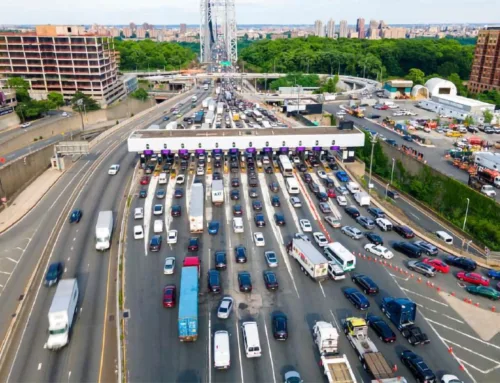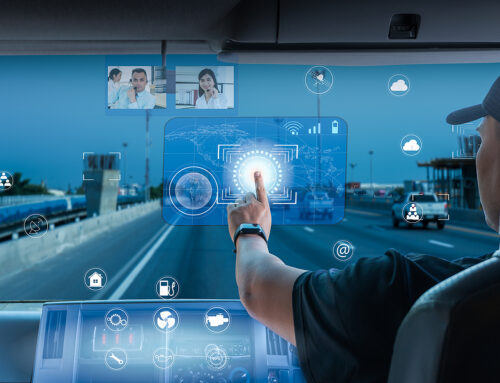Continued from Truck Accidents- New Technology May Help Your Accident Case – Part One
Trucking companies have great incentive to keep their vehicles operating safely and smoothly on the roads, and in support of that goal a wealth of fleet monitoring technology has been (and continues to be) developed. These fleet monitoring systems allow companies to track the status of their drivers and vehicles, identify potential problems, and often take preventive action to avoid costly and devastating truck accidents. Another advantage of these technologies to the motorists who share the road with commercial trucks is that, in cases where serious accidents still happen, fleet monitoring systems record a tremendous amount of relevant information about vehicle maintenance status, driver behavior, and what took place in and around the truck in the moments leading up to and during the collision; if that information can be preserved, it may serve as vital evidence in any resulting truck accident case.
 Fleet monitoring systems are inclusive of a number of different technologies aimed at tracking and transmitting the status and behavior of both vehicle and driver.
Fleet monitoring systems are inclusive of a number of different technologies aimed at tracking and transmitting the status and behavior of both vehicle and driver.
- A combination of GPS technology, telecommunications and internet systems, and vehicle diagnostic sensors that provide real-time updates and allow trucking companies to monitor the location, maintenance status, and behavior of each vehicle in their fleet.
- Collision Avoidance Systems. These technologies use radar or motion-detecting cameras to sense hazards and either warn the driver or automatically take action to avoid or mitigate a collision by engaging Automatic Emergency Braking (AEB) or lane-keeping assistance.
- Advanced Driver Assistance Systems. These systems proactively help the driver remain more aware of the truck’s surroundings, through adaptive cruise control, adaptive exterior lighting, and blind spot monitoring.
- Dual Facing Cameras. Cameras that record both the road ahead of the vehicle and the interior of the truck cab provide trucking companies with a more complete understanding of the events in and around the vehicle at critical moments, including before and during an accident.
The ways in which these technologies can be used by trucking companies to reduce the risk of truck accidents among their fleet are varied. With real-time GPS tracking of their vehicles, trucks can be diverted away from hazardous areas. Remote monitoring of mechanical diagnostic sensors gives companies and drivers immediate warning of potential mechanical problems, providing opportunity for repair and maintenance to prevent an accident. And possibly most critically, drivers who exhibit dangerous behavior behind the wheel can be identified and singled out for warning, retraining, or even firing before their actions can result in a severe crash.
Just as fleet monitoring systems can help trucking companies prevent accidents, those same technologies can be invaluable to victims of truck accidents in assembling their case for injury compensation. For a successful insurance claim or lawsuit, the injury victim and their attorney must prove that negligence, either on the part of the truck driver or of the trucking company, caused the crash. Similar to the way an airplane’s black box recordings are analyzed to help determine why the plane crashed, the information recorded by fleet monitoring technologies can be used to understand – and prove – what caused a truck accident.
Dual facing cameras can reveal whether the driver was distracted, fatigued, or in an otherwise compromised state at the time of the accident, while showing what was happening on the road ahead from the driver’s perspective. GPS and vehicle telematics prove how fast the truck was going, patterns of braking and acceleration, and other important details. Mechanical monitoring provides information about any vehicle maintenance problems or damage that may have been ignored by the driver or company. Fleet monitoring systems can answer questions that may be vital to your case, such as, “did the blind spot monitoring technology detect the presence of another vehicle?” or “was the truck drifting enough that the automatic lane-keeping assistance activated?” With access to all of this information, your attorney may be able to piece together the circumstances that resulted in your crash, and point to the specific ways in which the driver (or the trucking company, or both) made negligent mistakes that caused your collision.
Of course, it’s not in the interest of a trucking company that may be the target of a lawsuit to hold onto data that can be used against them. There are laws requiring these companies to save any data associated with an accident, but whether through deliberate malfeasance or simple error, relevant fleet monitoring data is sometimes lost. For a fleet of any size, the amount of data being logged every day is huge, so standard procedure for a company may be to hold data only for a certain time before it is deleted and overwritten, unless deliberately preserved. That is why you and your attorney need to act quickly to issue a preservation letter and ensure that no evidence vital to your case can be destroyed.
Contact MyNJInjuryLawyer Howard P. Lesnik
If you or a loved one suffered an injury in an accident in NJ, you should contact an attorney familiar with handling these claims. An experienced NJ Injury Lawyer will know how to obtain medical records, videos, photographs, experts, locate witnesses and contact the insurance company so you can make a claim for your injuries.
My NJ Injury Lawyer Howard P. Lesnik, Esq. offers complimentary strategy sessions to address any issue or questions you may have for your injury claim in NJ.
Please contact NJ Injury Lawyer Howard Lesnik, Esq., immediately if you were involved in an accident. I personally handle NJ personal injury cases on a regular basis. Please contact me now by email, by phoning 908.264.7701, or by completing the form to the right to schedule your complimentary 30-minute strategy session. Call me direct and I will answer 5 questions that you have about your potential claim.







